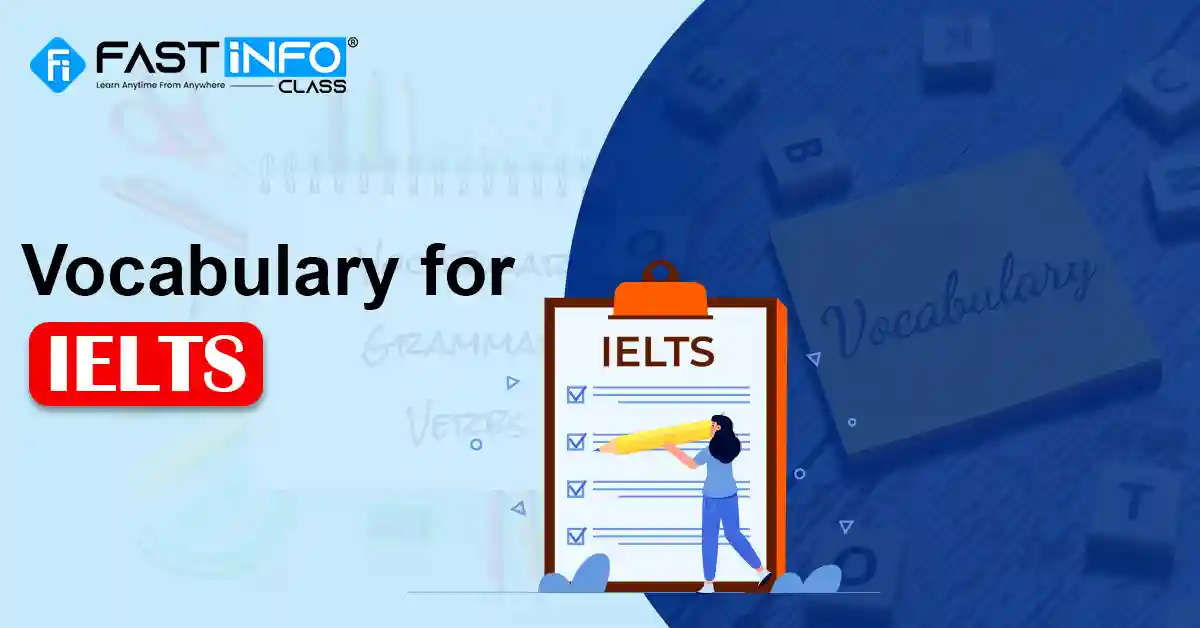Self Introduction in English for Job Interviews: A Guide
29 Dec, 2025
Welcome Offer for First Time Customers Get 15% off USE CODE: NEW15 AT CHECKOUT

Welcome Offer for First Time Customers Get 15% off USE CODE: NEW15 AT CHECKOUT

Welcome Offer for First Time Customers Get 15% off USE CODE: NEW15 AT CHECKOUT

Welcome Offer for First Time Customers Get 15% off USE CODE: NEW15 AT CHECKOUT

Welcome Offer for First Time Customers Get 15% off USE CODE: NEW15 AT CHECKOUT

Welcome Offer for First Time Customers Get 15% off USE CODE: NEW15 AT CHECKOUT

Welcome Offer for First Time Customers Get 15% off USE CODE: NEW15 AT CHECKOUT

Welcome Offer for First Time Customers Get 15% off USE CODE: NEW15 AT CHECKOUT


 By FastInfo Class
Published On 26 Sep 2023
Updated On 05 Feb 2025
Category spoken English course
By FastInfo Class
Published On 26 Sep 2023
Updated On 05 Feb 2025
Category spoken English course
The English language is a globally communicative language, used for communication in various contexts. It's essential to recognize that English isn't a monolithic entity; rather, it takes on different forms and nuances depending on the specific needs and goals of its users. Two of the most prevalent variations are Business English and General English. These two forms of English differ significantly in their purpose, vocabulary, tone, and communication styles.
There are some basic differences in comparison with Business English v/s General English Courses, which everyone should know how to use those in their daily life or in their proffessional fields to elevate or scaleup their career. English has established itself as the business language since it is widely utilised for global communication. When dealing with individuals in diverse fields, learning a second language improves communication, leading to better understanding and trust.
Here are a few more differences between the two to assist you to recognise their individuality and help you choose the kind of English lessons you should enrol in. Before discussing the differences we will know the definition of General English and Business English.
"General English" typically refers to the everyday or common usage of the English language. It encompasses the language skills and knowledge that people use for daily communication, both spoken and written, in various informal and formal situations. General English course includes vocabulary, grammar, pronunciation, and communication skills needed for everyday interactions, such as conversations, writing emails, reading newspapers, and understanding common social and workplace language.
In contrast to "specialized" or "specific" English, which might be used in technical, academic, or professional contexts, general English is the foundation upon which more specialized language skills can be built. It is the form of English that is widely understood and spoken by a broad range of people, making it a valuable skill for effective communication in many different situations and settings.
Business English is a specialized branch of the English language that is tailored for professional and corporate contexts. It revolves around the language, vocabulary, and communication skills necessary for success in the business world. It is employed in a variety of business-related situations, such as meetings, negotiations, presentations, written correspondence, and other formal interactions. Key elements of Business English encompass industry-specific terminology, formal communication etiquette, proficiency in writing professional documents, such as reports and business letters, and the ability to convey ideas clearly and persuasively in spoken and written form. Business English conversation is indispensable for professionals aiming to excel in the corporate arena, as it enables effective communication, negotiation, and relationship-building in diverse business settings. It is also essential for those engaging in international business, where cross-cultural communication plays a crucial role.
Business English, often abbreviated as "BE," is a specialized form of English used primarily in professional, corporate, and business-related settings. Its primary purpose is to facilitate effective communication in the world of commerce. This means that it's tailored to the needs of the business environment, where precise, concise, and purpose-driven communication is of paramount importance.
In Business English, the focus is on facilitating interactions related to business activities, such as negotiations, presentations, email correspondence, and industry-specific jargon. It is crucial in sectors such as finance, marketing, and international trade, where clear and unambiguous communication is vital for success.
General English, also known as "everyday English" or "conversational English," is the form of the language used for general communication in daily life. It encompasses all the language skills: speaking, listening, reading, and writing. General English serves as the foundation for learning any specialized form of the language, including Business English. It's used in casual conversations, reading books, watching movies, writing personal emails, and engaging in various non-business-related activities.
Business English employs a specific set of vocabulary and terminology tailored to the corporate world. It includes terms and phrases like "ROI" (Return on investment), "B2B" (Business-to-Business), and "synergy." This specialized vocabulary is necessary to convey precise meanings and concepts related to the business domain. Additionally, acronyms and abbreviations are commonly used in Business English to save time and space, given the fast-paced nature of business communication.
Moreover, formal language is favored in Business English. The use of contractions (e.g., "it's" instead of "it is") is less common, and there is a preference for using titles and last names when addressing colleagues or superiors, such as "Mr. Smith" or "Dr. Johnson."
General English has a broader and more versatile vocabulary that caters to a wide range of topics and everyday situations. It includes common words and phrases that people use in their daily lives, such as greetings, expressions of emotion, and discussions of various topics like food, travel, hobbies, and family.
Conversational English is often less formal. Contractions are widely used, and individuals may address one another using first names or casual titles like "Ms." or "Mr." This form of English allows for greater flexibility and creativity in language use, making it well-suited for personal interactions and creative expression.
The tone in Business English is typically formal and professional. It emphasizes clarity and precision in communication, aiming to avoid any ambiguity or misunderstanding. In written communication, such as business emails and reports, a formal tone is preferred, with a focus on professionalism and respect for hierarchy and authority.
Politeness and diplomacy are also crucial aspects of Business English. It is customary to use polite language and expressions when making requests, giving feedback, or discussing sensitive topics. This helps maintain a positive and respectful business environment.
The tone in general English varies based on the context and the relationships between speakers. It can be informal, friendly, casual, or even humorous, depending on the situation and the individuals involved. This flexibility allows for more personal and expressive communication.
In general English, people often use conversational fillers and idiomatic expressions, which may not be suitable in a business context. For example, it's common to use expressions like "I see what you mean" or "I have no idea" in casual conversations to convey understanding or lack thereof.
Communication in business English is typically goal-oriented and concise. It prioritizes delivering information efficiently, making decisions, and achieving specific objectives. Meetings, presentations, and negotiations in the business world often follow structured formats, and participants are expected to adhere to agendas and time constraints.
Written communication in business English is characterized by clear, well-structured messages with a professional and succinct style. Emails, reports, and business letters are designed to convey information efficiently and professionally.
General English allows for a more relaxed and spontaneous communication style. Conversations can be open-ended, meandering, or even exploratory in nature. People may engage in small talk, storytelling, or sharing personal experiences without a strict agenda.
Written communication in general English can be more creative and expressive. Personal emails, social media posts, and creative writing are examples where individuals have more freedom to express their personalities and emotions.
Your ability to engage in extracurricular activities is important when learning a language. Typically, we advise common English learners to view their favourite films in their original language or try to memorise the words of some of their favourite bands' songs. We urge everyone to watch animated children's television, even those just getting started. Talking English with other international students is another suggestion.
There are numerous suggestions for business English that are more polished. Here, we suggest that you read business English books and keep up with industry-specific publications. Attending specific business events in English allows you to relax and develop your confidence.
People who want to conduct casual, everyday conversations with others in this language can benefit from learning spoken English. When a non-native English speaker wants to communicate with a native or even non-native English speaker, this can be helpful. Basic vocabulary and grammar are used in this English. Therefore, it is understandable to the majority of individuals.
Business English is regarded as the most sophisticated language and focuses heavily on its vocabulary to practise analysing various content and issues. People in a business context should use business English. For instance, businesspeople, workers, job seekers, individuals working in the financial and legal industries, etc. You can advance professionally by using Business English.
Here we are discussing about 10 common business English conversation topics to improve your professional skills:
While both general English courses and business English courses have their own merits, individuals may choose a general or conversational English course over a business or professional English course for several reasons:
In summary, business English and general English are two distinct variations of the English language, each tailored to specific contexts, purposes, and communication styles. Business English is characterized by its specialized vocabulary, formal tone, and focus on precise, goal-oriented communication in professional settings. It is essential for success in the corporate world. On the other hand, general English is the foundation of language skills and is used in everyday life for personal interactions, entertainment, and creative expression.
Recognizing the differences between these two forms of English is crucial for individuals seeking to excel in both professional and personal communication. While business English is vital for success in the corporate realm, general English forms the basis for building strong relationships, engaging in diverse social interactions, and expressing one's individuality.
Mastering both business English and general English allows individuals to navigate the complex and multifaceted world of communication effectively, whether in the boardroom or in casual conversations, enabling them to achieve their goals and connect with people from all walks of life. So if you want to stand out from the crowd, don't pass up our online general Spoken English courses and English business courses.

Self Introduction in English for Job Interviews: A Guide
29 Dec, 2025

10 Effective Ways to Improve IELTS Vocabulary
05 Dec, 2025

Common IELTS Speaking Topics & Questions for 2025-2026
02 Dec, 2025

Common Idioms and Phrases for IELTS
02 Dec, 2025

Best Conversation Topics In English For Daily Use
02 Dec, 2025

Daily English Conversation Practice for Beginners: 50 Useful Topics
29 Jun, 2023

Must Read Novels to Improve English for Beginners to Advanced
21 Feb, 2023

Top 15 Spoken English Books to Enhance Your Fluency
09 Sep, 2023

English Speaking Course for Beginners - Everything you must know
22 Sep, 2021

25 Commonly Mispronounced English Words in India
26 Apr, 2024